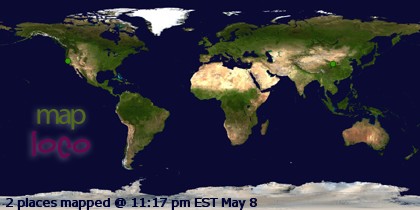Excerpts from the CDC site's recommendations are here:
- Identify the types of emergencies that are possible in your area. Besides a zombie apocalypse, this may include floods, tornadoes, or earthquakes. If you are unsure contact your local Red Cross chapter for more information.
- Pick a meeting place for your family to regroup in case zombies invade your home…or your town evacuates because of a hurricane. Pick one place right outside your home for sudden emergencies and one place outside of your neighborhood in case you are unable to return home right away.
- Identify your emergency contacts. Make a list of local contacts like the police, fire department, and your local zombie response team. Also identify an out-of-state contact that you can call during an emergency to let the rest of your family know you are ok.
- Plan your evacuation route. When zombies are hungry they won’t stop until they get food (i.e., brains), which means you need to get out of town fast! Plan where you would go and multiple routes you would take ahead of time so that the flesh eaters don’t have a chance! This is also helpful when natural disasters strike and you have to take shelter fast.
Assemble the following items to create kits for use at home, the office, at school and/or in a vehicle: (We've got the BOLD items already prepared.... man, I feel like a Mormon sometimes)
- Water—one gallon per person, per day (3day supply for evacuation, 2week supply for home)
- Food—nonperishable, easytoprepare items (3day supply for evacuation, 2week supply for home)
- Flashlight
- Batterypowered or handcrank radio (NOAA Weather Radio, if possible)
- Extra batteries
- First aid kit
- Medications (7day supply) and medical items
- Multipurpose tool
- Sanitation and personal hygiene items
- Copies of personal documents (medication list and pertinent medical information, proof of address, deed/lease to home, passports, birth certificates, insurance policies)
- Cell phone with chargers
- Family and emergency contact information
- Extra cash
- Emergency blanket
- Map(s) of the area
- Medical supplies (hearing aids with extra batteries, glasses, contact lenses, syringes, cane)
Baby supplies (bottles, formula, baby food, diapers)Games and activities for children- Pet supplies (collar, leash, ID, food, carrier, bowl, litter boxes, litter)
- Twoway radios
- Extra set of car keys and house keys
- Manual can opener
- Whistle
- N95 or surgical masks
- Matches
- Rain gear
- Towels
- Work gloves
- Tools/supplies for securing your home
- Extra clothing, hat and sturdy shoes
- Plastic sheeting
- Duct tape
- Scissors
- Household liquid bleach
- Entertainment items
- Blankets or sleeping bags
- AMMO (lots of ammo)

No comments:
Post a Comment
Note: Only a member of this blog may post a comment.